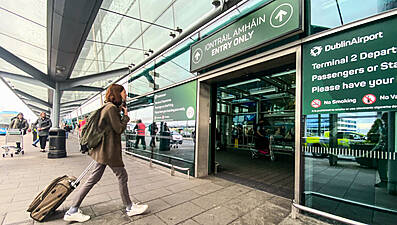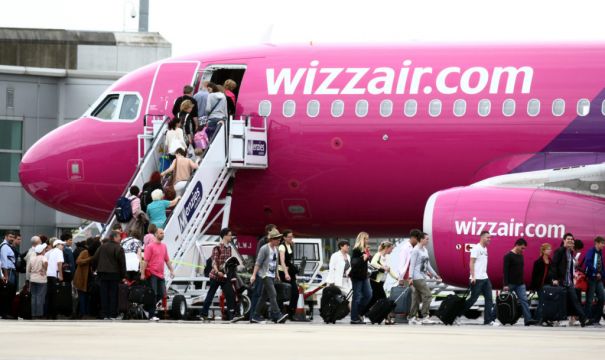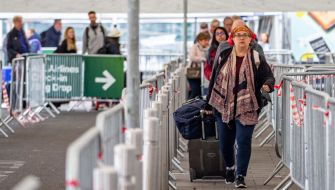Low-cost European carrier Wizz Air has said it will cut its peak summer flight programme due to travel chaos at airports.
The Hungarian airline said it would trim its capacity by another 5 per cent as part of efforts to avoid flight cancellations and delays.
Mounting disruption in the sector has been caused by staffing shortages at airports across Europe, with operations struggling to match soaring demand from holidaymakers now that Covid restrictions have been lifted.
The threat of strikes across the continent by airline employees and pilots is adding to the woes.
Heathrow Airport in London warned separately on Monday that it would ask airlines to cancel more flights this summer if it does not believe previous schedule reductions will sufficiently reduce disruption.
Carriers were previously ordered by the UK government and the Civil Aviation Authority to make sure their timetables were “deliverable” after the sector was unable to cope with demand last month.
The UK's largest airport admitted services levels have “not been acceptable”, with passengers suffering long check-in and security queues and problems with baggage handling on top of flight delays and cancellations.
The chaos at Heathrow was also seen in Dublin Airport throughout June, with some passengers missing their flights due to delays at baggage drop-off and security.
Amsterdam Schiphol and Stansted were among the other European airports where passengers face considerable disruptions due to airport delays and flight cancellations.
Wizz Air said: "To be able to avoid cancellations and secure a more punctual operation to our customers, we have further improved the agility and resilience of our network including adjusting schedules where we have seen a higher occurrence of issues.

"In total for the peak summer period, we expect to reduce utilisation a further 5 per cent versus the plan outlined at the full year results to reduce the impact of ongoing external disruptions."
Despite this, Wizz Air said it was set for a boost in demand over the summer and is forecasting a “material” operating profit in its July to September quarter.
This comes after it reported an operating loss of €285 million in its first quarter due to rising fuel costs and a strengthening US dollar.







